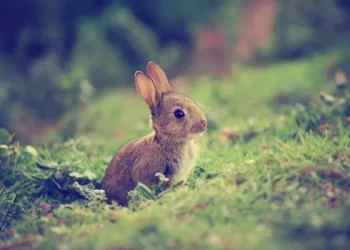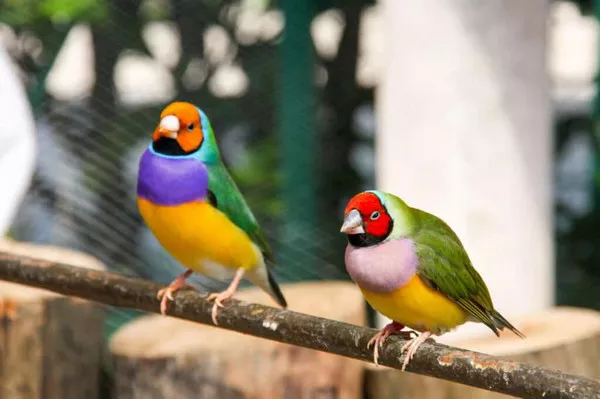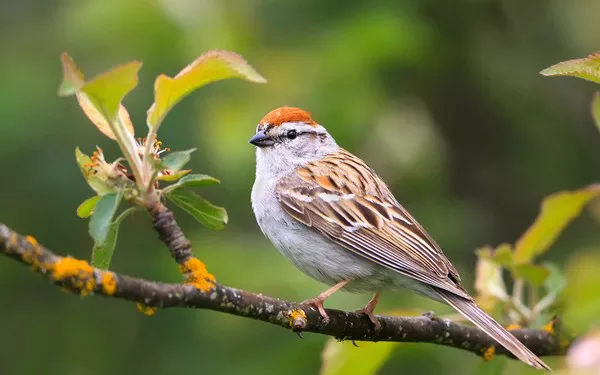Rabbits are often celebrated for their adorable appearance and playful demeanor. However, as a responsible pet owner, it’s crucial to understand that a rabbit’s diet plays a significant role in its overall health and well-being. While commercial rabbit food—usually in the form of pellets—is a staple in many bunny diets, there are numerous other food options that can provide essential nutrients and enrichment. This article will explore what rabbits can eat besides traditional rabbit food, discussing fruits, vegetables, hay, and treats while emphasizing nutritional balance and safety.
Understanding Rabbit Nutrition
Basic Dietary Needs
Rabbits are herbivores, which means their diet primarily consists of plant material. In the wild, their diet is composed of:
- Grasses
- Leaves
- Bark
- Herbs
- Fruits (seasonally)
A well-balanced diet for domestic rabbits should include a variety of these food types to ensure they receive the necessary vitamins and minerals. The fundamental components of a rabbit’s diet include:
Hay: The most important part of a rabbit’s diet, providing fiber necessary for digestive health.
Pellets: High-quality commercial rabbit food designed to meet their nutritional needs.
Fresh Vegetables: Essential for vitamins, minerals, and additional fiber.
Fruits: Should be offered in moderation due to higher sugar content.
The Importance of Fiber
Fiber is crucial for a rabbit’s digestive system. It helps keep their gut moving, prevents gastrointestinal stasis, and promotes healthy teeth by encouraging chewing. A diet low in fiber can lead to severe health issues, including obesity, dental problems, and digestive disorders.
Avoiding Harmful Foods
While it’s essential to diversify a rabbit’s diet, it’s equally important to be aware of foods that are toxic or harmful to them. Some common foods to avoid include:
Iceberg Lettuce: Contains little nutritional value and can cause diarrhea.
Potatoes: Toxic to rabbits in all forms.
Chocolate and Caffeine: Highly toxic and should never be given.
Certain Plants: Many houseplants and garden plants are poisonous.
What Can Rabbits Eat Besides Rabbit Food?
Hay: The Foundation of a Healthy Diet
While hay is often associated with rabbit food, it’s so vital that it deserves a dedicated discussion. Rabbits should have unlimited access to high-quality grass hay, which provides the necessary fiber and helps maintain dental health.
Types of Hay
Timothy Hay: A common choice, rich in fiber and low in protein and calcium, making it suitable for adult rabbits.
Orchard Grass Hay: Softer and sweeter, this hay is excellent for picky eaters.
Meadow Hay: A mix of grasses and herbs, providing variety in texture and taste.
Alfalfa Hay: High in protein and calcium, best suited for young rabbits or those needing to gain weight, but should be limited for adults.
Fresh Vegetables: Nutritional Powerhouses
Fresh vegetables are an excellent addition to a rabbit’s diet, providing essential vitamins and minerals. However, not all vegetables are created equal.
Leafy Greens
These should form the bulk of a rabbit’s vegetable intake. Offer a variety, including:
Romaine Lettuce: A great source of fiber and nutrients.
Kale: Rich in vitamins A, C, and K, but should be fed in moderation due to high calcium levels.
Spinach: Contains oxalic acid, so it should be limited to occasional servings.
Swiss Chard: Another leafy green to be fed in moderation due to calcium content.
Other Vegetables
In addition to leafy greens, rabbits can enjoy other vegetables:
Bell Peppers: Rich in vitamins A and C, these colorful vegetables can be offered daily.
Carrots: High in sugar, they should be treated as a treat rather than a staple.
Broccoli: A good source of fiber and vitamins; offer in moderation due to potential gas.
Cucumbers: Hydrating and low in calories, they can be offered regularly.
Fruits: Sweet Treats in Moderation
Fruits can be a delightful treat for rabbits but should be given sparingly due to their high sugar content.
Safe Fruits for Rabbits
Apples: Remove seeds and core; high in fiber and vitamin C.
Bananas: A favorite treat; very sugary, so offer only occasionally.
Berries: Strawberries, blueberries, and raspberries are all great options.
Pineapple: Fresh pineapple in small amounts can provide digestive enzymes.
Treats: Enhancing the Diet with Variety
While the primary focus should be on hay, vegetables, and limited fruits, rabbits can also enjoy occasional treats that are safe and healthy.
Commercial Rabbit Treats
Many pet stores offer commercially prepared treats specifically designed for rabbits. Look for those that are high in fiber and free from artificial ingredients and excessive sugars.
Homemade Treats
You can also make homemade treats using safe ingredients. For example, you can mix hay with a little bit of mashed banana or apple sauce, then shape it into small pellets and dry them out.
Human Food: Caution and Creativity
Some human foods are safe for rabbits, but caution is needed. Always research before offering anything new.
See Also: How to Train a Rabbit at Home?
Safe Options
Oats: Small amounts of plain oats can be offered as a treat.
Brown Rice: Cooked plain brown rice can be an occasional addition.
Herbs: Fresh herbs like parsley, cilantro, and basil are usually safe and enjoyed by rabbits.
Foods to Avoid
Avoid high-fat, high-sugar, or processed foods. Items like bread, crackers, and dairy should not be included in a rabbit’s diet.
Implementing a Balanced Diet
Portion Control and Variety
A balanced diet for rabbits consists of about 70-80% hay, 10-15% fresh vegetables, and 5-10% fruits and treats. Offering a variety of foods ensures they receive a broad spectrum of nutrients.
Gradual Introductions
When introducing new foods, do so gradually. Sudden changes can upset a rabbit’s digestive system. Monitor for any signs of gastrointestinal distress, such as diarrhea or loss of appetite.
Hydration
Ensure your rabbit has access to fresh, clean water at all times. Hydration is critical for digestive health and overall well-being.
Signs of a Healthy Diet
Understanding the signs of a healthy diet in rabbits can help you monitor their health:
Healthy Weight: Rabbits should have a trim figure with a rounded belly.
Regular Bowel Movements: Consistent production of round, firm droppings indicates a well-functioning digestive system.
Active Behavior: A well-fed rabbit should be playful and active, demonstrating curiosity and engagement.
Common Dietary Issues in Rabbits
Obesity
Overfeeding or offering too many high-calorie treats can lead to obesity, which is a significant health concern. Monitor your rabbit’s weight and adjust portions as needed.
Gastrointestinal Stasis
This serious condition occurs when the digestive system slows down or stops entirely. It can be caused by a lack of fiber or sudden dietary changes. Signs include reduced appetite, lethargy, and small, hard droppings.
Dental Problems
Rabbits’ teeth grow continuously, and a diet low in fiber can lead to dental issues. Ensure your rabbit has plenty of hay to promote proper chewing and grinding of their teeth.
Conclusion
Providing a varied and balanced diet for your rabbit is essential for its health and happiness. While commercial rabbit food plays a critical role, supplementing with fresh vegetables, fruits, and safe treats can enhance their quality of life and well-being.
Always prioritize hay as the foundation of their diet and introduce new foods gradually while monitoring their health. By understanding what rabbits can eat besides rabbit food, you can create a nutritious and enjoyable eating experience for your furry friend.
Remember, a happy rabbit is a healthy rabbit, and the right diet is key to achieving that happiness. With proper care, your rabbit can thrive and lead a long, fulfilling life by your side.
Related Topics:


























